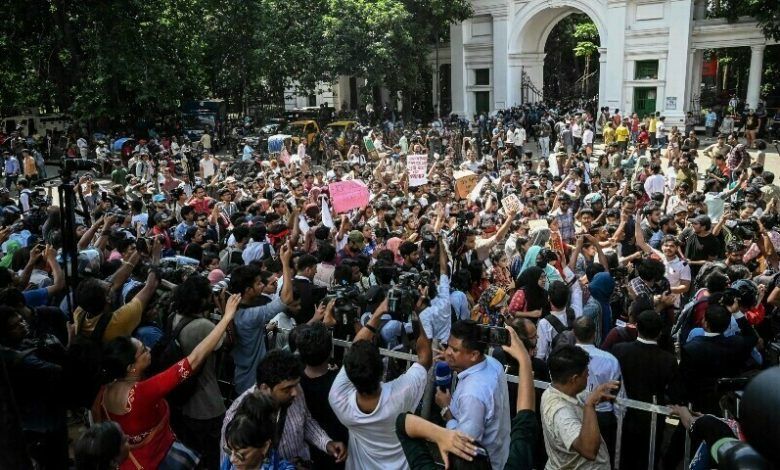Rights Group Reports Dozen Deaths in Detention Following Bangladesh’s Revolution

A human rights group has reported that at least a dozen people have died in detention in Bangladesh since last year’s revolution, with some victims succumbing to torture and gunshot wounds.
The organization, Odhikar, which is one of the country’s largest human rights bodies, has called for justice from the interim government that assumed power following the student-led revolution that ousted former Prime Minister Sheikh Hasina.
Odhikar’s director, ASM Nasiruddin Elan, urged the interim government not to let these crimes go unpunished. “Those involved in extrajudicial killings must be brought to justice,” Elan stated in an interview with AFP.
In a new report, Odhikar highlighted how security forces, during Hasina’s 15-year autocratic rule, were involved in widespread killings to consolidate her power.
The report also accused the same agencies of continuing to commit human rights violations since Hasina fled the country in August 2024, following a mass uprising. The United Nations reports that more than 1,400 people may have been killed during the revolution.
After fleeing to neighboring India, Hasina has defied an arrest warrant to face trial for crimes against humanity.
In the aftermath of her departure, Bangladesh’s security forces launched sweeping arrests targeting supporters of Hasina’s Awami League party and loyalists of what the government now calls her “fascist” ex-regime.
Odhikar’s report details 12 deaths that occurred between August 9 and December 31, 2024, all of which involved individuals in the custody of security forces.
Among the victims, three were in police custody, while others were under the control of various security units, including the armed forces and the notorious Rapid Action Battalion (RAB).
The rights group claims that seven victims died from torture, and four others succumbed to gunshot wounds. In one case, a victim was reportedly beaten and pushed off a bridge by the police.
One of the cases featured 18-year-old Elahi Sikdar from Gopalganj, who was arrested for allegedly attacking soldiers. His body, showing signs of injury, was later recovered from a hospital. Sikdar’s brother, Kudrat Sikdar, explained that like many other grieving families, they would not pursue legal action, stating, “We have accepted his death as destiny.”
In response to the report, Bangladesh police spokesperson Inamul Haque Sagar assured AFP that officers had been instructed to “refrain from activities beyond their jurisdiction.”
Following the revolution, the country’s armed forces were granted judicial powers similar to those of the police, including the authority to make arrests. Army Chief Waker-Uz-Zaman has expressed concerns over the potential extension of these powers.
The report has sparked renewed calls for reform and accountability within Bangladesh’s security forces, as the country grapples with the fallout from the revolution and the ongoing human rights challenges.





